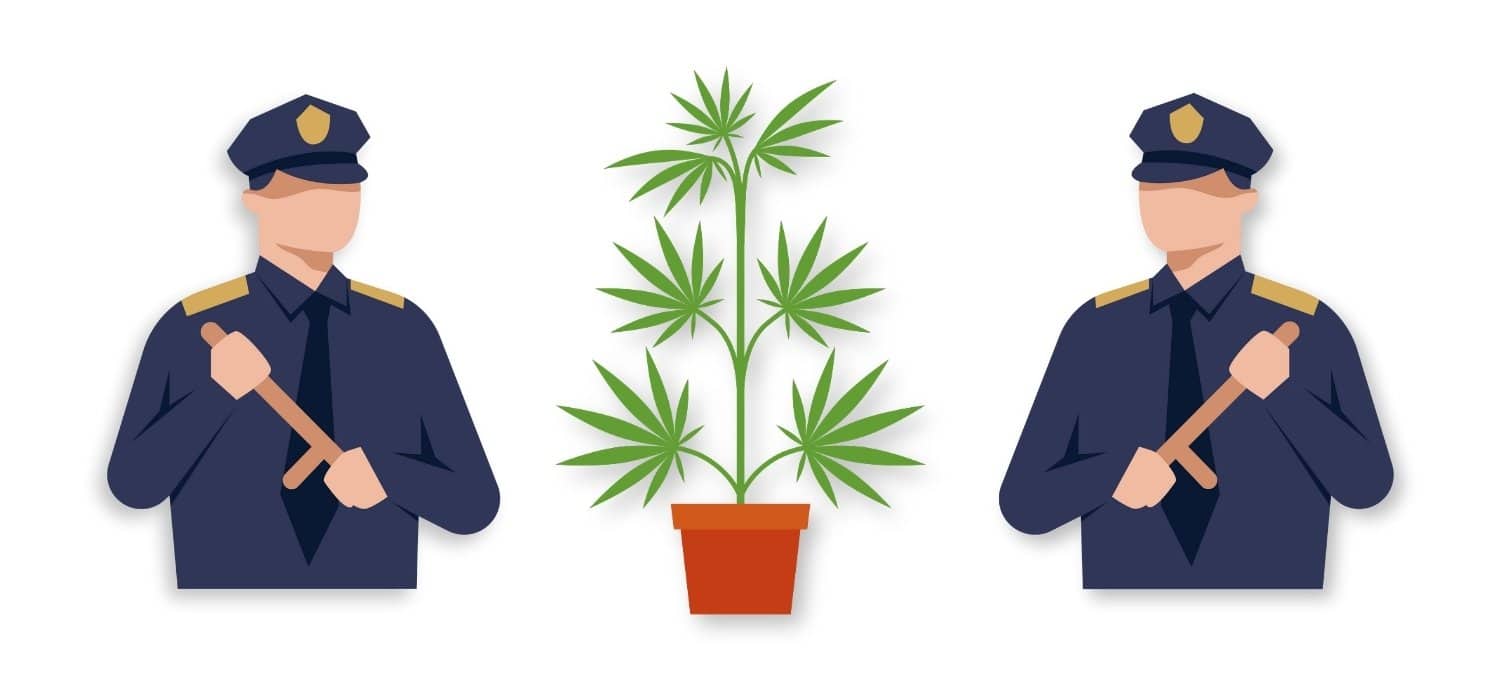The topic of cannabis legalisation and decriminalisation stirs many emotions. While some countries have long taken bold steps in this direction, Poland remains quite conservative. However, with changes in the political landscape and growing public support, there is increasing discussion about possible cannabis decriminalisation. Let’s take a closer look at this issue.
What will you learn from this article?
👉 What does cannabis decriminalisation mean?
👉 Will cannabis be decriminalised in Poland?
👉 What are examples of cannabis decriminalisation in other countries?
Table of contents:
Cannabis decriminalisation – what does it mean? 🍀
Cannabis decriminalisation means reducing the penalties for possessing cannabis for personal use. Unlike legalisation, distribution and trade may still be considered criminal offences. This means that possessing small amounts of cannabis would no longer be punishable by imprisonment, but only by fines or other non-criminal sanctions.
Decriminalisation doesn’t mean full acceptance and unrestricted use of cannabis. Possession of larger quantities, trading, distribution, or even cultivation can still be severely punished. Nevertheless, minor “offences” like a few grams of flowers for personal use are tolerated.
Cannabis decriminalisation isn’t an invitation to party, but rather removing the cage while keeping the key – less repression, more common sense.
Lucas Cysewski – CEO and founder of VapeFully
Legalisation, on the other hand, means removing the act from statutory penalties. After adopting law amendments or introducing new legal provisions, committing a given prohibited act is no longer punished. It’s worth noting that decriminalisation and legalisation are two different approaches with their unique implications and consequences for society.
An example of cannabis decriminalisation is the state of Louisiana in the USA, where possession of small amounts of cannabis was decriminalised on June 15, 2021. However, this does not mean full legalisation – possession of 14 grams or less results in a $100 fine with no threat of imprisonment.
Cannabis decriminalisation in Poland 🌿
According to current regulations in Poland, cannabis possession is punishable by up to 3 years imprisonment. However, recently there have been voices suggesting it’s high time to follow other countries and at least decriminalise possession of small amounts for personal use. Supporters of change argue that current laws are ineffective and generate unnecessary costs while stigmatising users.
On the other hand, opponents fear that decriminalisation could lead to increased cannabis availability and consumption, and consequently – overdoses and negative health consequences, especially among young people.
It’s also worth mentioning the role of THC, the main psychoactive component of cannabis, which can cause various effects depending on dose and individual sensitivity. This compound raises concerns when discussing decriminalisation. For some users (e.g., beginners), experiences can be too overwhelming – especially with insufficient knowledge about dosing.
In Poland, representatives of groups such as Free Cannabis (Wolne Konopie) continue to work towards legalisation. In recent months, initiatives have emerged aimed at softening regulations. On November 7, 2024, the Parliamentary Committee for Petitions forwarded to the Prime Minister a citizens’ petition providing for the decriminalisation of possession of up to 15 grams of cannabis and cultivation of up to 2 cannabis plants for personal use.
Despite these actions, at present, no legal changes have been introduced regarding the decriminalisation or legalisation of cannabis. Possession of even small amounts of this substance is still treated as a crime, which emphasises the severity of current regulations.
Cannabis decriminalisation – summary 🚓
Although cannabis decriminalisation in Poland seems increasingly realistic, it remains a topic that sparks much controversy and discussion. Supporters of change emphasise the need to move away from repressive drug policies and focus on education and harm reduction. Opponents, however, fear that decriminalisation could lead to increased consumption and negative health consequences.
Regardless of the final decision, it’s worth remembering that vaporisation or smoking cannabis is becoming better tolerated even in neighbouring countries. Germany has already legalised this substance for recreational use. Time will tell whether Poland will follow the same path and what consequences this will have.
In November 2024, the Czech Republic liberalised its cannabis laws, decriminalising possession and cultivation. New regulations allow possession of up to 50 grams of flower at home, 25 grams in public places, and cultivation of up to three plants with THC content above 1% for personal use. This is another case of law liberalisation close to Poland.










